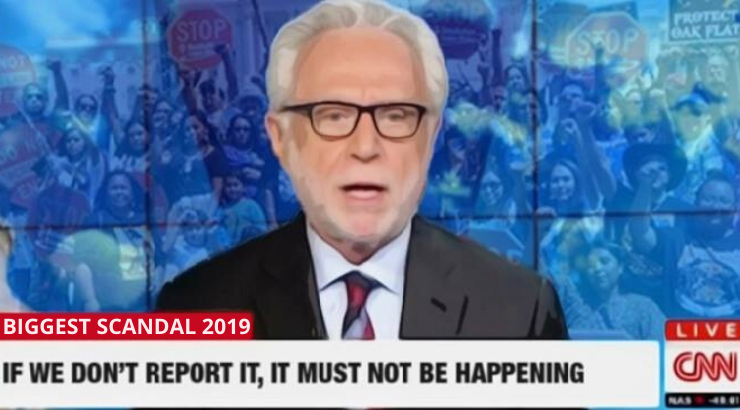
MSM Journalist Blows Whistle on Biggest Scandal of 2019 and Nobody’s Talking About It
The media will continue to ignore the year's biggest scandal until it disappears into obscurity.
A commerce student once told me that when there is a major scandal involving a business, the entity that ignores the scandal and does nothing to publicly address it generally recovers from the scandal better than those companies that issue statements, seek to address the issue, and do what they can to appease those affected.
If true, it should be no surprise when we see the corporate media employing these tactics.
The recent controversy involving the Organization for the Prohibition of Chemical Weapons (OPCW) is a clear example of these tactics in play. The OPCW was recently accused of releasing a doctored report regarding the alleged chemical attack in Douma, Syria in April of last year.
WikiLeaks has all but confirmed the allegations when it published multiple documents further demonstrating the massive cover up.
But rather than address the story for what it is, the mainstream media has either flatly ignored the issue, or tried to paint the issue as being one which is the work of Russian propagandists.
But what happens when a journalist within the mainstream framework actually wants to publish and report on the story accurately? Thanks to Tareq Haddad, formerly of the IBTimes, Hull Daily Mail, and most recently Newsweek, we have a pretty clear idea of what happens to those few journalists who dare question the unquestionable.
According to Haddad, Newsweek refused to publish the story based on some very dubious justifications. The one that catches my eye is the idea that “not a single respected media outlet…have taken this leak remotely seriously.” I can’t help but think that is done on purpose—not because the story is bogus, but because the major corporate news outlets generally get their standing orders from the same source.
After Haddad went to great lengths to alleviate Newsweek’s concerns about the story, Newsweek’s focus quickly turned to his performance as a writer at their outlet. All of a sudden Haddad’s integrity as a journalist was under fire, and Newsweek had concerns about his ability to fact-check and leave out his own assumptions and opinions—something he claims was not raised before in all his time as a writer.
Choosing a dedication to the truth over his career, Haddad resigned in protest and was threatened with legal action when he announced his intention to publish the details of what happened.
However, the part of Haddad’s story which is most curious is his allegation that Newsweek’s foreign affairs editor, Dimi Reider, is rarely involved in the formulation of stories in the way that other editors typically are. In Haddad’s experience, it was only when a story became controversial did Dimi involve himself in the process.
Dimi Reider is an Israeli journalist and the co-founder of +972 Magazine, a liberal Israeli publication that covered the 2008-2009 Gaza War, also known as Operation Cast Lead. He worked at the European Council on Foreign Relations between 2013 and 2016, the sister organization to the Council on Foreign Relations (CFR). The CFR is the leading foreign policy think-tank in the United States, and boasts current and former members such as Fareed Zakaria, Elliott Abrams, Madeleine Albright, Bill and Hillary Clinton, Zbigniew Brzezinski, Henry Kissinger, and many others.
If Haddad’s account is true, it confirms much of what many of us working in alternative media circles have suspected for some time. It also helps to explain the rise of both the so-called “fake news” sites as well as credible alternative media, as the general public have begun to trust the corporate media less and less over the years.
Every now and then, the media will let slip an article which criticizes government policy from an anti-war perspective. If the target of that criticism is Donald Trump, we tend to see it more often in recent times. But it appears there are some topics which are just simply too taboo as far as the mainstream media is concerned. As far as we can see, any news development that lets the Assad government off the hook by any stretch of the imagination is not to be taken seriously by a “single respected” news organization, even if it is grounded in truth.
This is despite the fact that the “Assad gases his own people” line has had significant holes in it over the years. In fact, I recall a Newsweek article from last year that quoted then secretary of defense James Mattis as saying that there was no evidence Assad used poison gas on his own people. I suppose we are just supposed to forget these minor details.
Given that the U.S. and its allies pre-empted any findings from the OPCW and launched an attack on a sovereign nation (in what can only be described as a major PR stunt), the leaks are easily the biggest scandal of the year. Like most leaks involving Syria, the media will continue to ignore the story until it disappears into obscurity.
We should all work to stop this from happening.
